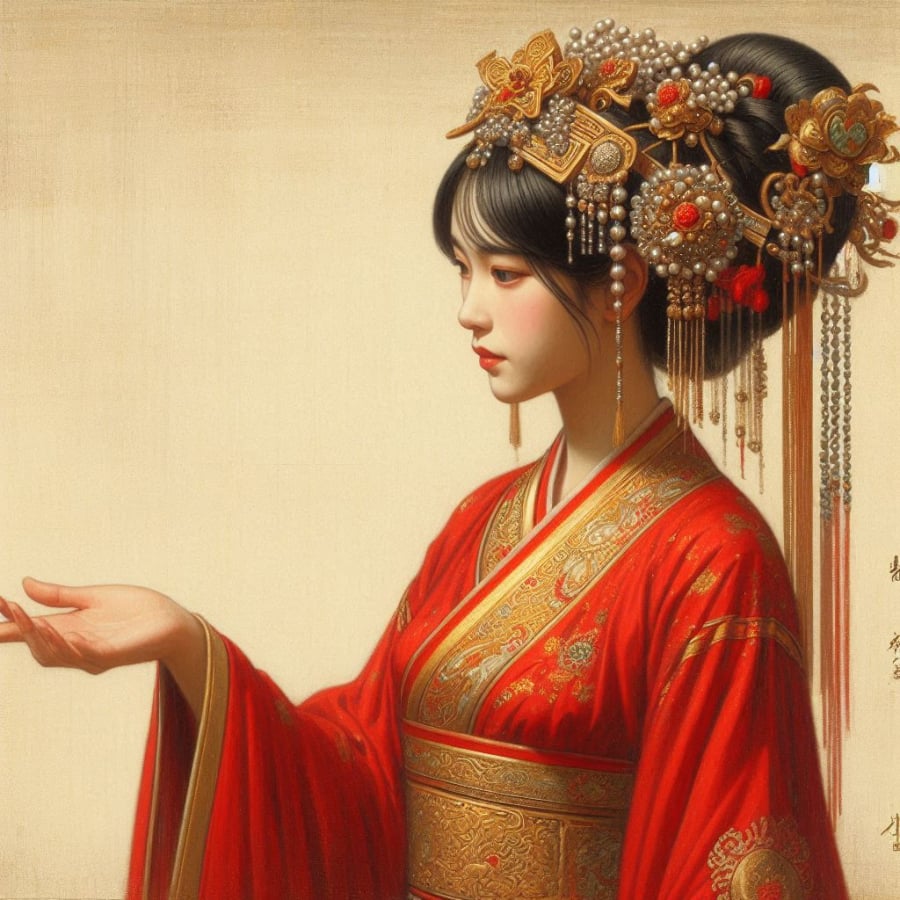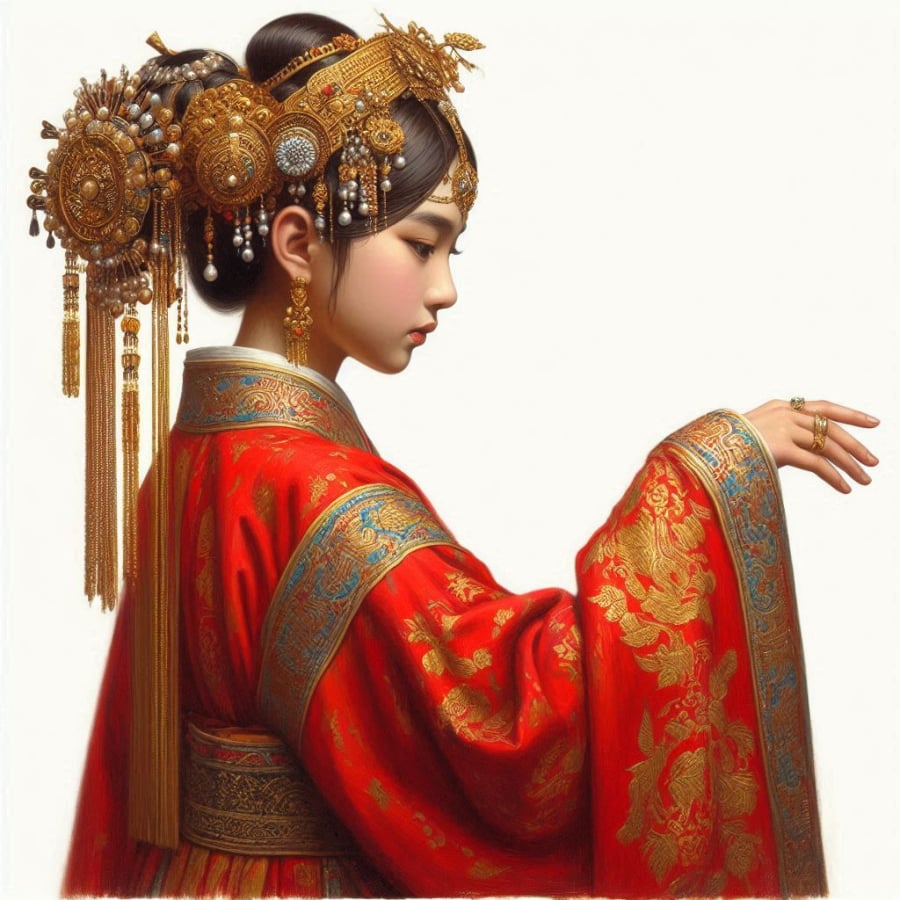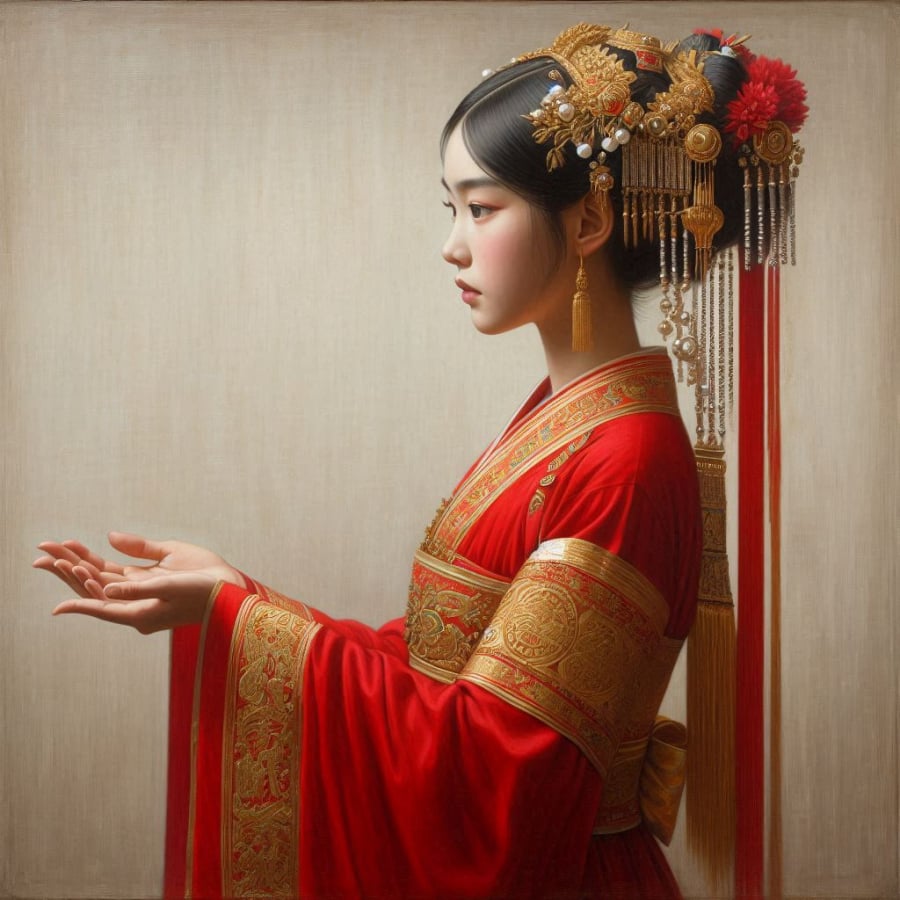The book “Viet Su Giai Thoai” by historian Nguyen Khac Thuan, mentions a story about a princess named Le Ngoc Duong, born in 1439, who later became known as the Viet Quoc Truong Princess. However, a tragic turn of events occurred in 1448 when she developed a speech impairment and lost her ability to speak.
According to the customs of the Le Dynasty, a princess was to be married off to a carefully chosen husband when she turned sixteen. Unfortunately, despite being only ten years old and facing her speech challenge, in November 1448, the Viet Quoc Truong Princess was forced into a marriage with Le Quat, the son of Le Thu.

Despite her young age and speech impairment, the Viet Quoc Truong Princess was forced into a marriage with Le Quat in November 1448
This event was recorded in the “Dai Viet Su Ki Toan Thu” (Volume 11), which states: “In the 11th month, the king gave his niece, the Viet Quoc Truong Princess, in marriage to Le Quat, son of the Grand Preceptor Le Thu. At that time, the princess was only ten years old and suffered from a speech impairment that left her unable to speak.”
The king appointed Trinh Khac Phuc, the Judge of Punishment, as the wedding host. Le Thu took charge of the wedding preparations, and opportunists, upon hearing the news, rushed to offer their wealth, hoping for influence and honor. Embroidered silks, fine linens, and other luxurious fabrics were snapped up from the streets.
Le Thu also compelled officials from various regions to provide enough buffaloes, cows, and other gifts. Local officials, seeking to curry favor with Le Thu, forced soldiers and common people to contribute significantly.
Historian and Professor Nguyen Khac Thuan commented in his book, “Viet Su Giai Thoai”: “For a commoner’s daughter with a speech impairment, a life of solitude would have been inevitable. However, as a princess, Viet Quoc’s fate was distinct: not only did she marry into the family of the Grand Preceptor, but she did so at the tender age of ten.”
“Le Thu and his son, Le Quat, likely did not wish for a bride with a speech impairment. Still, the opportunity to amass wealth from across the realm was too tempting for the greedy Le Thu to pass up, and sycophants seized their chance to bribe him.”

The wedding of the Viet Quoc Truong Princess had a significant impact on contemporary society
The wedding of the Viet Quoc Truong Princess stands out in history as one of the few that had a notable impact on contemporary society.
The groom, Le Quat, hailed from a powerful family, being the son of Le Thu, one of the founding fathers of the Le Dynasty. Queen Mother Nguyen Thi Anh, acting on behalf of the king, arranged the marriage between Princess Ngoc Duong and Le Quat to strengthen the bond and secure the throne for King Le Nhan Tong.
As per the regulations in the “Hoi Dien,” the princess’s wedding had to undergo six separate ceremonies, each held on a different day and featuring distinct items like betel nuts, wine, cattle, gold, and silver. All gifts were carefully selected by the Royal Observatory.

Queen Mother Nguyen Thi Anh arranged the marriage to strengthen the bond and secure the throne for King Le Nhan Tong
To ensure a grand wedding for his son, Le Thu sent people far and wide to gather gifts. Officials in Thang Long also competed to offer their congratulations, causing a shortage of goods, especially luxurious fabrics.
Tragedy struck again in 1459 when King Le Nhan Tong was assassinated by his brother, Nghi Dan, in a power grab. In the ensuing chaos, Le Thu and several other high-ranking officials plotted to overthrow Nghi Dan but failed and were killed.
After this tumultuous event, historical records provide little information about the subsequent lives of Princess Ngoc Duong and her husband, Le Quat.
































